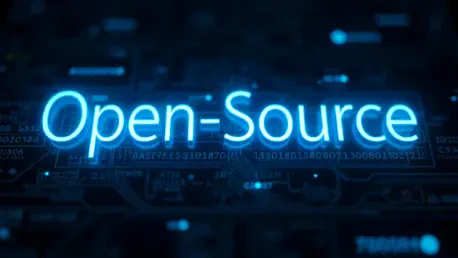The Backbone of Modern Tech: Understanding Open Source Infrastructure
Imagine a world where the digital tools powering smartphones, websites, and enterprise systems suddenly vanish—such a scenario underscores the invisible yet indispensable role of open source software in today’s technology landscape, driving innovation across industries. This foundational infrastructure supports everything from operating systems like Linux to the countless libraries and frameworks that developers rely on daily. Its significance cannot be overstated, as it forms the bedrock of modern computing.
At the heart of this ecosystem lie critical package registries such as Maven Central, PyPI, and npm, which host millions of software components accessed by developers globally. These repositories facilitate billions of downloads each month, serving as vital hubs for software distribution and collaboration. Their existence enables rapid development cycles and ensures that businesses and individuals alike can build on shared resources without starting from scratch.
These systems, however, often depend on a community-driven model sustained by volunteer maintainers and supported through donations or nonprofit foundations. Despite their massive scale and impact on global software development, the resources backing them are frequently limited, relying on the goodwill of contributors. The sheer volume of usage highlights their importance, but it also raises questions about how long such a model can endure under growing pressures.
The Growing Imbalance: Corporate Overconsumption in Open Source
Exploitation Trends and Emerging Challenges
A troubling trend has emerged in the open source ecosystem, where large corporations and AI companies disproportionately consume resources without matching contributions. This imbalance threatens the very principles of collaboration and sharing that define the community. As commercial entities leverage these free tools for profit, the burden on infrastructure and maintainers intensifies, creating a rift in the ethos of mutual benefit.
Specific practices exacerbate this strain, including AI firms scraping entire registries for training data, enterprises flooding servers with redundant requests, and vendors exploiting public repositories as cost-free content delivery networks for proprietary products. Such behaviors not only overtax technical systems but also drain the energy of volunteer stewards who struggle to keep up. The risk of burnout and project abandonment looms large as a consequence.
This overconsumption erodes the spirit of cooperation that once fueled open source growth. Maintainers, often working without compensation, face mounting challenges in sustaining critical projects under the weight of commercial demands. If left unchecked, this dynamic could undermine the trust and goodwill that have long been the community’s foundation, pushing the ecosystem toward a breaking point.
Data and Warnings from the Ecosystem
Recent data paints a stark picture of the scale of this issue, with package registries reporting exponential increases in download volumes driven by commercial users. Some systems have logged billions of requests monthly, often from a small subset of high-volume entities that fail to implement basic efficiencies like caching. These statistics reveal a system stretched thin by demands far beyond its original design.
A joint statement from major repositories and foundations, including those under the Open Source Security Foundation, has sounded the alarm on these unsustainable practices. Their open letter highlights a glaring mismatch between the scale of commercial usage and the level of support provided, warning that infrastructure designed for community sharing is being treated as a free utility. The message is clear: without intervention, critical systems risk collapse.
Looking ahead, the coalition emphasizes that continued neglect of this imbalance could trigger systemic failures across the tech industry. Their call for accountability targets large-scale users, urging a shift in behavior to prevent cascading disruptions. The potential for widespread impact underscores the urgency of addressing these challenges before they spiral out of control.
Challenges Facing Open Source Sustainability
The sustainability of open source infrastructure faces significant hurdles, starting with the financial and operational burdens placed on maintainers. Many volunteers juggle full-time jobs while managing projects critical to global systems, often with little to no funding for server costs or development time. This precarious situation threatens the longevity of essential software components.
Technological strains add another layer of difficulty, as servers buckle under excessive requests from users who bypass caching or other load-reducing measures. High-volume commercial entities, in particular, contribute to this problem by treating public repositories as limitless resources rather than shared assets. The resulting stress on infrastructure highlights a need for better usage protocols to alleviate pressure on systems.
Market-driven expectations further complicate matters, as profit-focused organizations often assume free access is a given, clashing with the reciprocal ethos of open source. This tension creates friction within the community, as maintainers seek support while corporations prioritize cost savings. Encouraging better practices and fostering a culture of give-and-take among corporate users could pave the way toward a more balanced approach.
The Call for Accountability: Proposals and Policies
In response to these mounting issues, the coalition of package repositories and foundations has put forth actionable proposals to ensure sustainability. These include tiered access models for high-volume users, financial partnerships to offset infrastructure costs, and mandates for better caching practices to reduce server strain. Such measures aim to address the root causes of overconsumption without altering the core accessibility of open source.
Importantly, these solutions target commercial entities rather than individual developers or small projects, preserving the principle of open access for the broader community. The focus remains on ensuring that those deriving significant value from the ecosystem contribute proportionately, whether through funding or operational adjustments. This approach seeks to maintain fairness while safeguarding resources.
Community standards also play a vital role in enforcing sustainable usage, setting expectations for responsible behavior without transforming open source into a paid service. By fostering dialogue and establishing norms, the ecosystem can balance free access with the pressing need for infrastructure stability. The broader impact of these policies lies in their potential to realign incentives, ensuring long-term viability for all stakeholders.
The Future of Open Source: A Tipping Point or a Turning Point?
If corporate freeloading persists without mitigation, the trajectory of open source infrastructure could lead to severe consequences. Critical projects might be abandoned as maintainers reach their limits, triggering cascading failures that disrupt software supply chains worldwide. Such scenarios would ripple through the tech industry, affecting everything from startups to global enterprises.
Yet, emerging risks also present opportunities for innovation through collaborative models and heightened corporate responsibility. Partnerships between companies and communities could yield new funding mechanisms or shared infrastructure solutions, easing the burden on volunteers. Strengthening community support networks further offers a pathway to resilience, ensuring that no single project bears disproportionate strain.
Global tech trends and economic conditions will undoubtedly shape this future, as will evolving expectations from users who rely on open source daily. The balance between accessibility and accountability will be tested in the coming years, particularly as demand continues to grow. Whether this moment becomes a tipping point for collapse or a turning point for renewal depends on collective action across the ecosystem.
Preserving Open Source for All
Reflecting on the discussions held, it became evident that corporate overconsumption posed a tangible threat to the delicate framework of open source infrastructure. The coalition’s urgent call for accountability emerged as a pivotal step, addressing systemic imbalances that had long been ignored. Their warnings resonated throughout the industry, shedding light on the fragility of systems taken for granted by many.
Moving forward, actionable steps crystallized as essential to safeguarding this vital ecosystem. Corporations were encouraged to adopt sustainable usage practices and contribute financially or operationally to offset their impact. Developers and foundations, meanwhile, stood to benefit from stronger alliances, pooling resources to tackle shared challenges with renewed vigor.
Ultimately, a recalibration of how resources are shared proved necessary to uphold the integrity of the open source model. Stakeholders across the spectrum were urged to collaborate on innovative frameworks that prioritized long-term stability over short-term gains. This collective effort held the promise of not only preserving but also enhancing the communal spirit that has defined open source from its inception.









